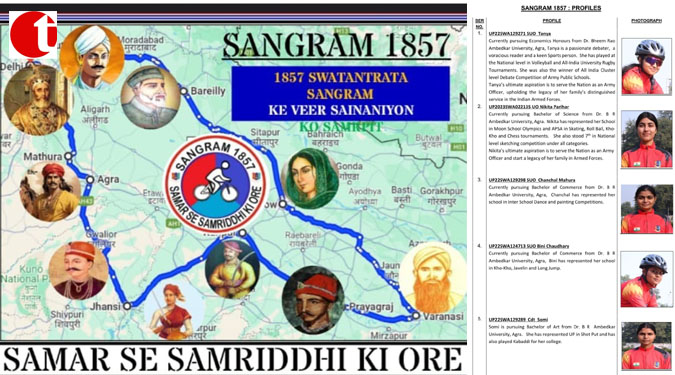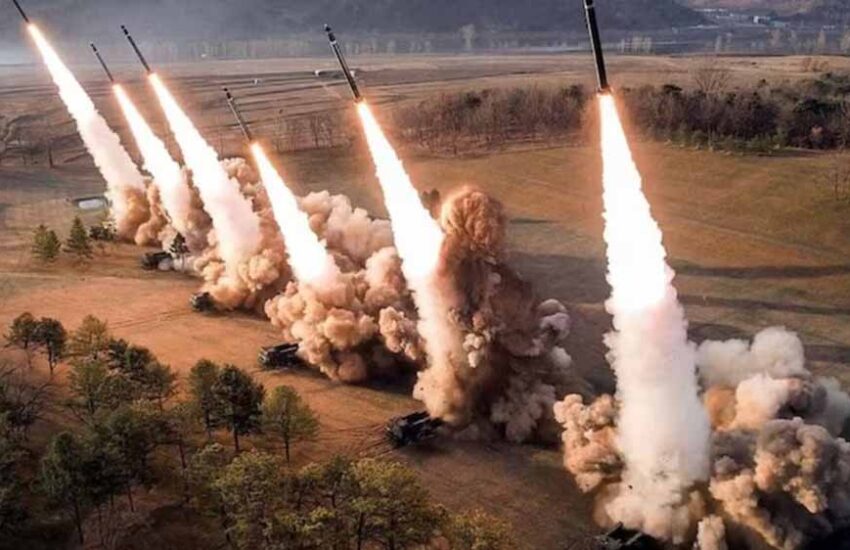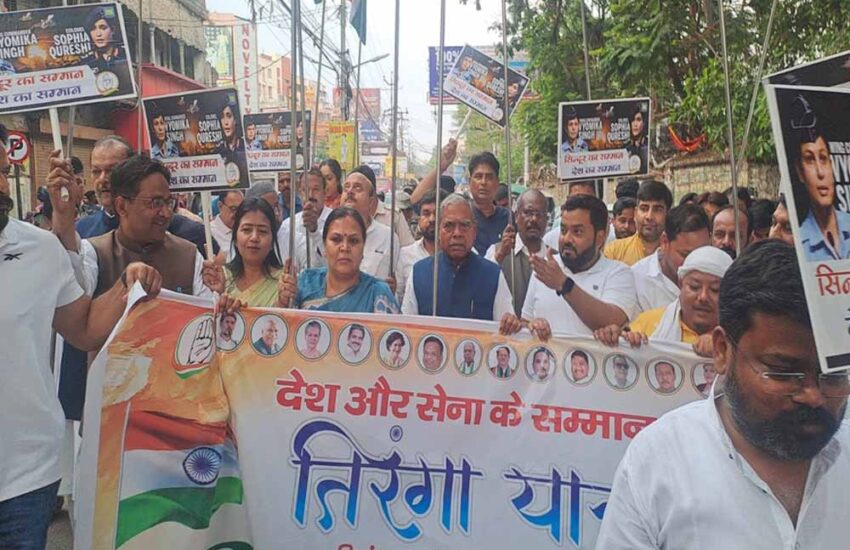TIL Desk Lucknow:👉In the 75th year of the Indian Republic, UP NCC Directorate will be undertaking a Cycling Expedition to commemorate the First War of Independence and pay tribute to the sacrifices of the soldiers and civilian population therein. The expedition, aptly titled ‘SANGRAM 1857’, aims to motivate the masses to make their value contribution towards nation building in the Amrit Kaal, with the message “Samar se Samriddhi ki Ore”. Led by Brig NS Chaarag, Group Commander of Agra NCC Group, the expedition team comprises of 15 NCC cadets, including five girl cadets, of UP NCC Directorate. The expedition will commence from Meerut on 01 Jan 25, traverse through all the major battlefields and significant places of the revolt including Bareilly, Lucknow, Prayagraj, Varanasi, Kanpur, Jhansi, Gwalior, Agra and Mathura, to finally culminate at New Delhi on 27 Jan 25 – covering a total distance of 2000 km in 17 cycling days.
The team will flagged-in at Lucknow by the GOC-in-C Central Command on 04 Jan 25 and further flagged off by the Hon’ble Governor of UP from the Raj Bhavan on 05 Jan 25. The expedition will finally culminate during the PM’s Rally of the NCC Republic Day Camp 2025 at New Dellhi, where it will be flagged in by the Hon’ble Prime Minister.
India’s First War of Independence of 1857, often called the Sepoy Mutiny, marked the first widespread resistance against British colonial rule. The uprising, which began as an opposition to the introduction of the P-1857 Lee Enfield Rifle by the native soldiers of the British East India Company at Barrackpore on 29 Mar 1857, and conflagrated into a revolt on 10 May 1857, was fuelled by a range of socio-political, religious, economic, and military grievances against the colonial rule. The revolt began in Meerut, and quickly spread across Northern and Central India, particularly in Delhi, Kanpur, Lucknow, Prayagraj, Varanasi and Jhansi – with majority of the hot spots of the revolt being in the state of Uttar Pradesh.
It is this First War of Independence against the British rule, which sowed the seeds of Indian nationalism and the consequent freedom movement drew inspiration from the bravery and sacrifices of those who fought in 1857, resulting in the 90-year long struggle that eventually led to India’s independence on 15 Aug 1947. The tales of the heroism of Mangal Pandey, Kunwar Singh, Tantia Tope, Nana Saheb, Khan Bakht and Rani Laxmibai in the revolt continue to inspire us even today.
The National Cadet Corps (NCC), being the largest uniformed youth organization in the world, serves to inspire and train the youth of our country to be responsible and patriotic citizens of the country, and also plays a significant role in shaping the perceptions of the civilian population in several ways, contributing to the community development and fostering national values. Of the 17 NCC Directorates in the country, UP NCC Directorate is the largest, and has its presence in all 76 districts of the state of Uttar Pradesh, boasting of a cadet strength of almost 1.7 Lacs.



